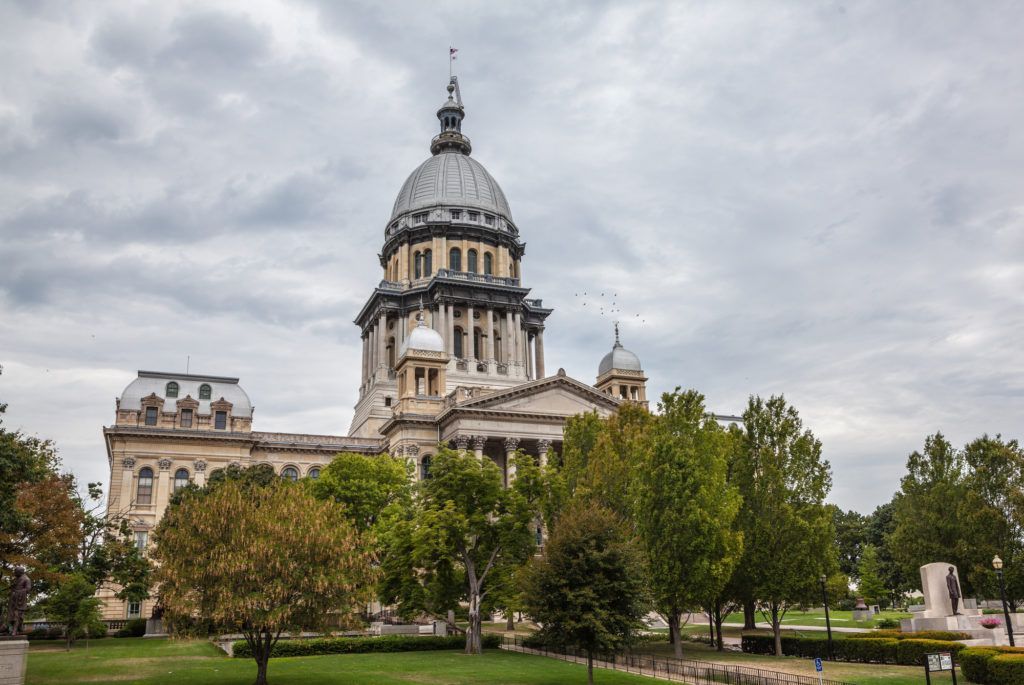
Bills to Watch in the 103rd Illinois General Assembly
HB 3306, HB 2099 and The Corporate Transparency Act

Bills to Watch in the 103rd Illinois General Assembly
We have been keeping our eyes on some recently proposed legislation in Springfield. The passage of these bills could result in significant changes for local governments and for future development projects. Here are just a few:
Introduction: HB 3306 and HB 2099
HB 3306 Housing Regulations, sponsored by Rep. Norine K. Hammond and currently assigned to the House Housing Committee, targets local zoning laws concerning manufactured homes and addresses the issue of local zoning regulations concerning manufactured homes, aiming to provide more flexibility and opportunities for homeowners.
HB 2099 Food Truck Freedom Act, presented by Rep. Dave Vella and currently assigned to Consumer Protection Committee, seeks to establish the Food Truck Freedom Act, targeting the regulatory framework governing food truck businesses.
These two bills seek to promote economic growth, enhance consumer choice, and create a more vibrant and inclusive community. As these bills progress through the legislative process, stakeholders will provide input to shape the future of housing and food truck regulations in Illinois.
Summary: HB 3306 Housing Regulations and
HB 2099 Food Truck Freedom Act
HB 3306 Housing Regulations seeks to amend the Counties Code, Township Code, and Illinois Municipal Code to prohibit zoning ordinances from restricting the erection of industrialized residential structures or manufactured homes on real property. However, certain conditions must be met, including compatibility with the character of the district, adherence to aesthetic compatibility requirements, and compliance with applicable standards for exterior design. Importantly, the bill prohibits restrictions based on the age of manufactured homes, opening avenues for affordable housing solutions. Additionally, it allows the installation and occupation of pre-owned manufactured homes on residentially zoned properties, subject to compliance with specified provisions. Furthermore, counties, townships, or municipalities are empowered to establish health and safety standards for relocated pre-owned manufactured homes, ensuring the well-being of occupants. Overall, HB 3306 aims to streamline regulations, promote housing affordability, and enhance housing options across Illinois.
HB 2099 Food Truck Freedom Act seeks to eliminate unnecessary barriers and streamline licensing processes for food truck operators. Under the proposed legislation, local governments are prohibited from imposing separate licenses, permits, or fees beyond an initial or reciprocal business license for food truck businesses. This move aims to reduce administrative burdens and promote entrepreneurship in the mobile food industry. Moreover, the bill standardizes licensing procedures, allowing food truck businesses to obtain reciprocal licenses across different jurisdictions. It also sets limits on licensing fees, ensuring they only cover the actual processing costs. Additionally, food truck operators are required to obtain annual health department permits, ensuring compliance with food safety regulations. The bill also addresses food truck participation in events and temporary mass gatherings, providing clarity on operational guidelines. Overall, HB 2099 aims to foster a conducive environment for food truck businesses to thrive while ensuring public health and safety standards are upheld.
Corporate Transparency Act: An Overview
In a move towards greater transparency and accountability in the corporate world, the Federal Government introduced the Corporate Transparency Act. This legislation mandates that all formed entities, regardless of size or purpose, including LLCs and Corporations, disclose specific information about the company and its beneficial owners.
For the company itself, the required information encompasses fundamental details such as its name, address, jurisdiction of formation, and identification number issued by the governing jurisdiction. Moreover, entities must provide an image of the document that conferred the unique identification, such as the filed stamped Articles of Organization or Certificate of Formation.
Regarding beneficial owners, the act defines them as individuals who either own over 25% of the company or satisfy the Substantial Control Test. This test encompasses various criteria, including holding senior officer positions, authority over the appointment of senior officers or majority of the board, substantial influence over decision-making, or significant involvement in entity decisions.
Effective from January 1, 2024, entities formed prior to this date must report by January 1, 2025, while those formed after have 30 days from filing, potentially extending to 90 days pending proposed rulemaking amendments. Failure to comply with these requirements may result in penalties of $500 per day, capped at $10,000.
However, certain entities are exempt from these regulations, including publicly traded companies, government-regulated entities, SEC and CFTC-regulated entities, tax-exempt nonprofit organizations, and wholly owned subsidiaries of exempt entities.
It is important to note that on March 1, 2024, a federal judge ruled that the Corporate Transparency Act is unconstitutional. The verdict carries weight, yet it doesn't mark the complete demise of the CTA just yet. Initially, its impact is restricted as it merely halts the enforcement of the CTA against the plaintiff, the NSBA members, without a broader application to non-participating entities. Additionally, there's a strong likelihood of an appeal against the ruling, and further legal challenges to the CTA may follow suit. It is possible that the CTA might undergo amendments to tackle the concerns raised by the recent verdict.
Shapiro & Associates is a real estate and commercial litigation law firm representing real estate developers, small businesses, individuals and local governmental entities throughout Illinois and the Chicago area in practice areas of land use, litigation, and local government law. For questions, please feel free to contact us at info@shapiroassociateslaw.com.

CONTACT US TODAY
Contact Us
We will get back to you as soon as possible.
Please try again later.
LOCATION
570 Lake Cook Road, Unit 119
Deerfield, IL 60015
Shapiro & Associates Law | All Rights Reserved |
Created by Olive + Ash.
Managed by Olive Street Design.








